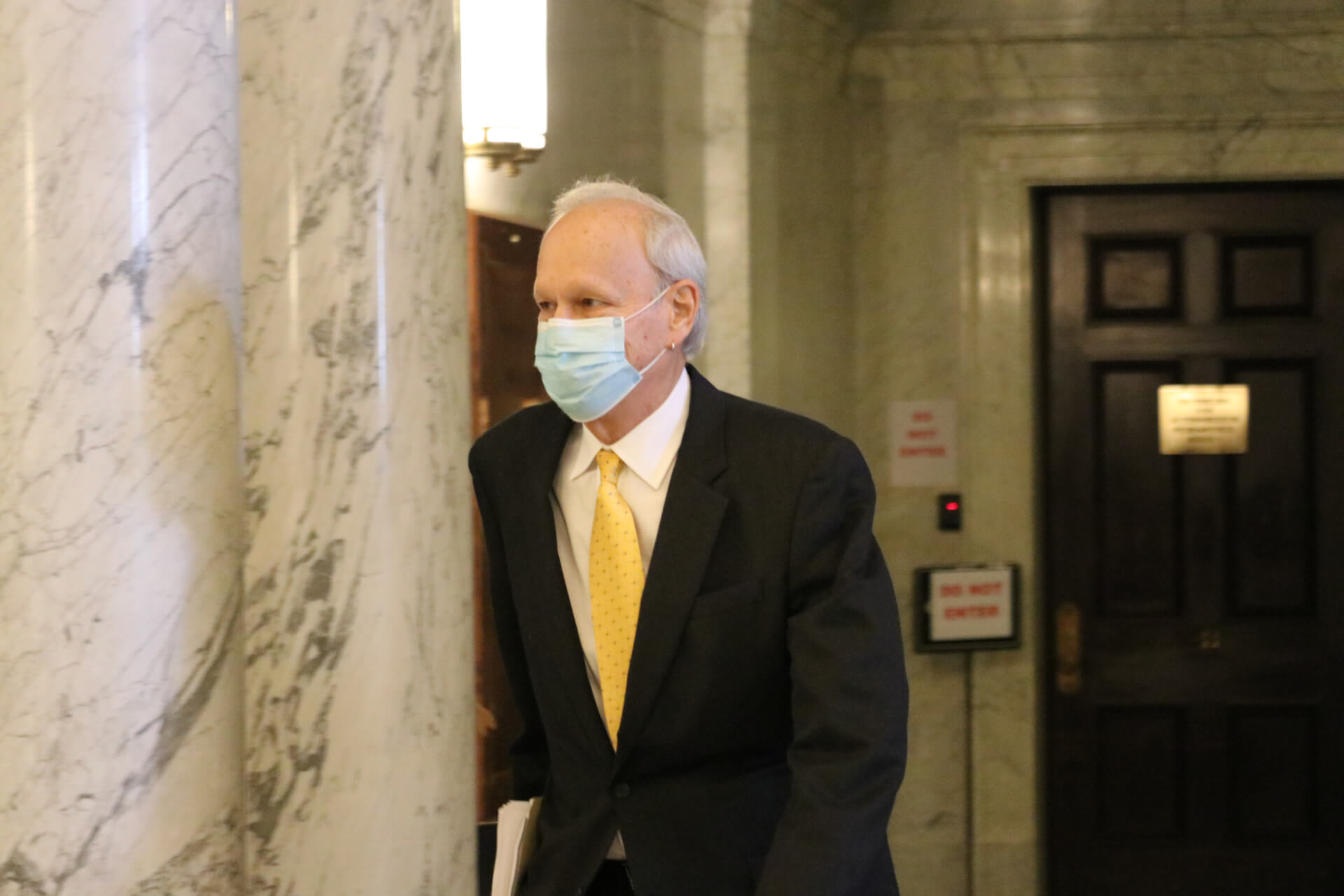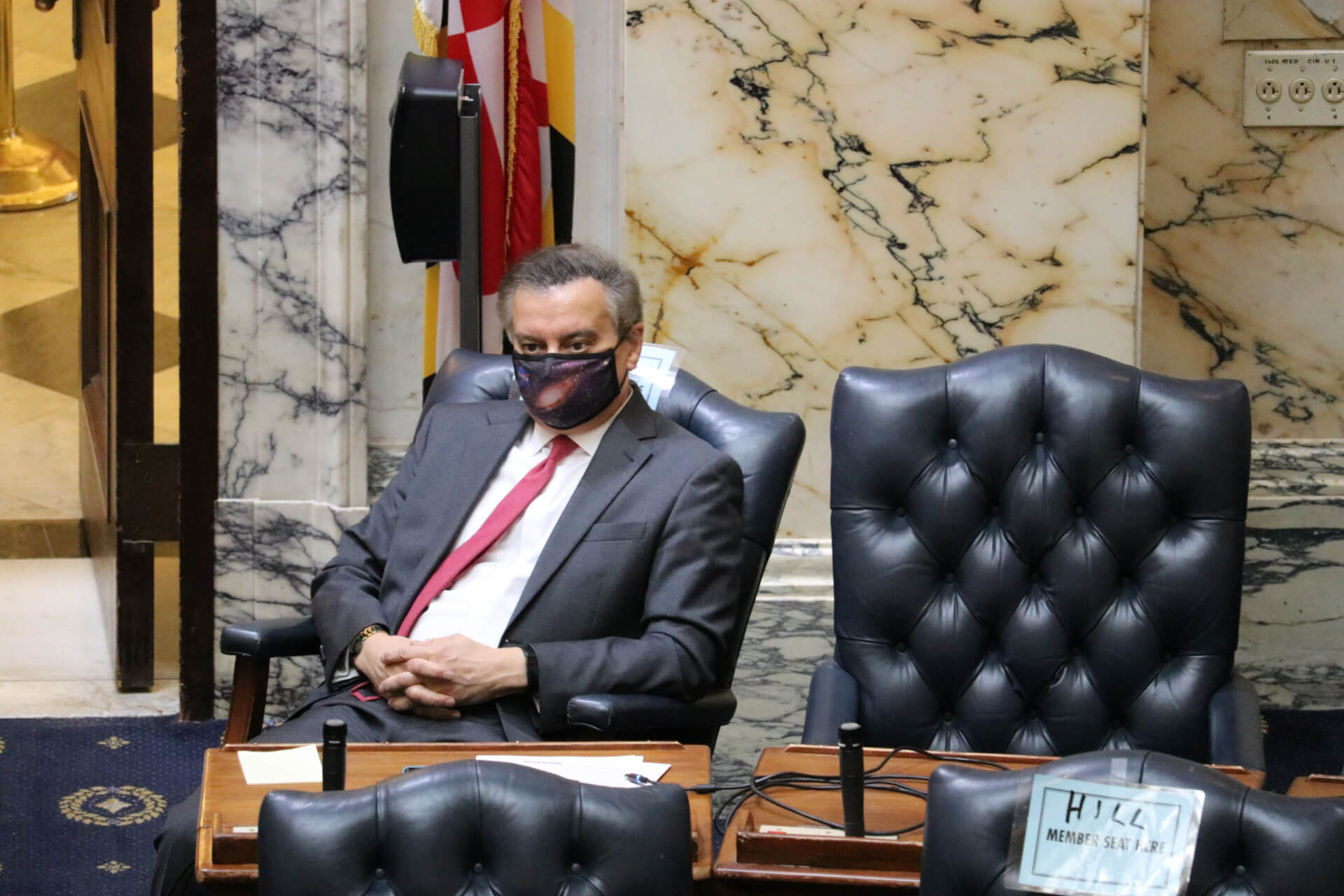Maryland PTA Seeks Injunction to Stop Reorganization By National Officials
Maryland’s PTA and the national organization are feuding, with battles over management, alleged hostile work environments and local leader elections.
The Maryland PTA filed for an injunction and temporary restraining order against National PTA in early September to stop the national group from taking over and reorganizing the state chapter.
The Maryland PTA had been put on probation three months earlier for “high turn-over among board members as a result of a hostile board environment” and “an assumed directive of loyalty to the Maryland PTA president rather than to Maryland PTA and its members.”
In late August, the national organization said Maryland’s chapter needed to be restructured because of a failure to comply with its probationary status and a national “Standards of Affiliation Policy.” Under restructuring, National PTA can ask for the state association’s funds, assets, physical property and access to technology accounts. And Maryland PTA can no longer contact its local PTAs or use any of its funds without National PTA’s approval.
But Maryland PTA is still communicating with local units, according to county PTA leaders.
If Maryland PTA does not comply with restructuring rules, National PTA can revoke its charter at any time, it warned in a letter obtained by Maryland Matters. Maryland PTA responded by filing an injunction and temporary restraining order in Anne Arundel County Circuit Court. A hearing date has not been set.
“The attempted action by National PTA did not afford the State PTA any due process and is an egregious attempt to circumvent State law and the bylaws governing Maryland PTA … the majority of the board of directors felt the only option was legal action,” the Maryland PTA board said in a statement.
After National PTA placed Maryland on probation in May, the state PTA hired an attorney, who is paid from funds that were “raised partially by membership dues, sponsorships and donations from outside sources,” Tonya Sweat, the vice president of advocacy of Maryland PTA, said.
“I will say attorneys are not cheap, however our attorney has been very gracious and giving us a lot of his time for a flat fee,” Sweat said. Attorney Charles Tucker Jr. said a portion of his hours are pro bono.
But local PTA leaders said they were not aware that membership dues were being used to pay for Maryland PTA’s attorney.
“We don’t want membership money going towards this legal action because we members are not in agreement with what they’re doing,” said Deborah Demery, the president the PTA Council of Baltimore City.
A high turnover
The PTA was founded in 1897, making it the oldest child advocacy group in the country. It is also the largest, with over 7 million members in the country, including 200,000 in Maryland PTA.
In March, National PTA had received complaints from more than two-thirds of Maryland PTA’s local chapters about the new state board of directors, which came into office in July 2019. There was a lack of regular communication with county PTA leaders, a hostile state board environment that contributed to 10 departures in less than a year, and confusion as to how to hold local board elections during a pandemic, local leaders said.
Laura Mitchell was one of the two treasurers who resigned during the current board’s administration. Mitchell, an accountant, began to raise a red flag after she noticed that Maryland PTA’s cash balance numbers were not matching up, and she wanted to have view-only access to the organization’s bank accounts to verify the numbers. But the board refused, she said.
“Without having access to verify the information, I was not willing to sign my name,” Mitchell said. “The fact that they didn’t match was a big deal.”
However, Maryland PTA had a different view on Mitchell’s resignation. “She had more than view-only access, but she never used it,” Sweat said. Sweat said she challenged Mitchell when she did not produce treasurer reports and took steps to remove her from the board. Mitchell resigned in the end.
“If you didn’t agree with what they were doing, they made it such a hostile environment that people left,” Demery said.
Six members resigned from the state board within a month, Mitchell said.
‘It’s transparency that builds confidence’
A week before filing for an injunction, Maryland PTA released its annual report, in which the organization revealed that the previous state PTA president had cashed a $95,000 deposit that was meant for building emergencies and improvements without board approval. The building was vandalized and records were shredded when the new board entered office, according to the report.
This was the first time that county leaders heard about this, Cynthia Simonson, the president of Montgomery County Council of PTAs, said. “To hold that information for a year and then put it in an annual report with no details around what the final outcome was … it is concerning,” she said. “It’s transparency that builds confidence.”
The Maryland PTA board thought it was more appropriate to update members at the 2020 convention because they would have had all the information by then, Sweat said. But the convention did not happen due to the pandemic, and it took the state board until August to get all the information to present in its annual report, she said.
The report also included a 4-page audit that revealed financial mismanagement in fiscal year 2018-2019, during the previous state board administration.
Locals’ concerns about the state PTA began when the new board came into office last summer, but tensions reached a boiling point when the pandemic hit in March.
Elections for board members at local PTAs usually take place in May, but because of the COVID-19 pandemic, many local leaders wanted to conduct general membership votes electronically, over Zoom in real-time, for example.
This was met with unwavering resistance from the board of Maryland PTA. The organization’s bylaws do not allow members to vote by proxy, and it cannot be verified on a virtual platform that the member purporting to cast a vote is in fact that member, Sweat said. Zoom is not secure enough, and higher security virtual platforms cost too much, she said.
Maryland PTA stood by the policy, even as a number of state and local governments have shifted to virtual meetings. The Maryland State Board of Education, for example, has been taking votes on WebEx by raised hands and voice vote, or by roll call if some members are not using the video feature.
“If National PTA can hold a virtual convention and elect new officers electronically, why can’t Maryland PTA?” Demery asked.
When Gov. Lawrence J. Hogan Jr. (R) announced in April that all Marylanders would vote by mail in the June primary, Maryland PTA allowed local board elections to be conducted by mail. Local PTAs had two choices for board elections: vote in-person or by mail.
But fewer members would turn out for in-person elections during a pandemic. And voting by mail would require families and local PTAs to spend money on stamps, county leaders said. “With the advancement of technology and the ability for us to use a virtual live mechanism to hold meetings, we can be very confident about who is casting the vote,” Simonson said.
Limiting general membership votes and annual elections was like handcuffing the business of local PTAs, Simonson said. Budgets need to be approved for the next school year. Local board members were faced with either halting the business of their local units during a pandemic, when children need them the most, or to go against their state parent organization and hold leadership votes electronically if they believed that voting in-person or by mail is not possible, local leaders said.
When asked how local PTAs should function, Sweat said current local board officers could keep their positions, eliminating the need for elections during the pandemic. Existing local board members have the authority to vote electronically, so they can approve a budget electronically while general members can adopt it later, when the pandemic passes, Sweat said.
Not seeing eye to eye
Maryland PTA leaders contend they were never given the opportunity to work with locals about their concerns, and that National PTA took “aggressive” action by placing its Maryland affiliate on probation and later into restructuring, Tucker, the Maryland PTA attorney, said.
“What the current board has done is try to address some of the misdoings from the previous administration, and has caught a lot of flak for it,” Tucker said. National PTA did not have to intervene, he said.
Even so, local leaders said they want more transparency. Before legal action was taken, Maryland PTA should have talked with local leaders and followed the will of the members instead of acting on its own, the PTA president of a Prince George’s County school said. “My frustration has been on the lack of communication and lack of transparency,” he said.
In emails, state leaders have rebutted some of the local complaints. “Maryland PTA continuously and consistently communicates with Council PTA leaders,” Edna Battle, the president of Maryland PTA, wrote to Leslie Boggs, the president of National PTA, in August. “Unfortunately, Council PTA leaders have not responded in kind.”
Local leaders said it was confusing to see Maryland PTA fight against its own parent organization when they both have the same mission to serve children. “It’s like applying for emancipation from your parents when you’re 12,” Mitchell said.
“Our duty of loyalty is to the organization [PTA], not to individuals,” Simonson said.
Demery, the Baltimore City PTA president, expressed doubt that Maryland PTA would have reconciled with local leaders on its own. She noted how Maryland PTA excluded council leaders from a town hall meeting in June.
The National PTA hopes to continue working with Maryland PTA, but it is unclear what will happen after the lawsuit was filed.
“It remains our sincere hope that Maryland PTA can swiftly find an equitable resolution to its current situation that embraces the needs of the greatest numbers of its council and local leaders and members,” Boggs, the national president, said in a statement.
“It is essential that we get back to our work of supporting and helping meet the needs of students, families, schools and communities, especially in this time of crisis in our country,” she said.
Local leaders said the problem is not the PTA organization, but rather the state board’s leadership.
“There are wrong people in the right position,” Demery said. “When PTA works, it works.”




 Creative Commons Attribution
Creative Commons Attribution